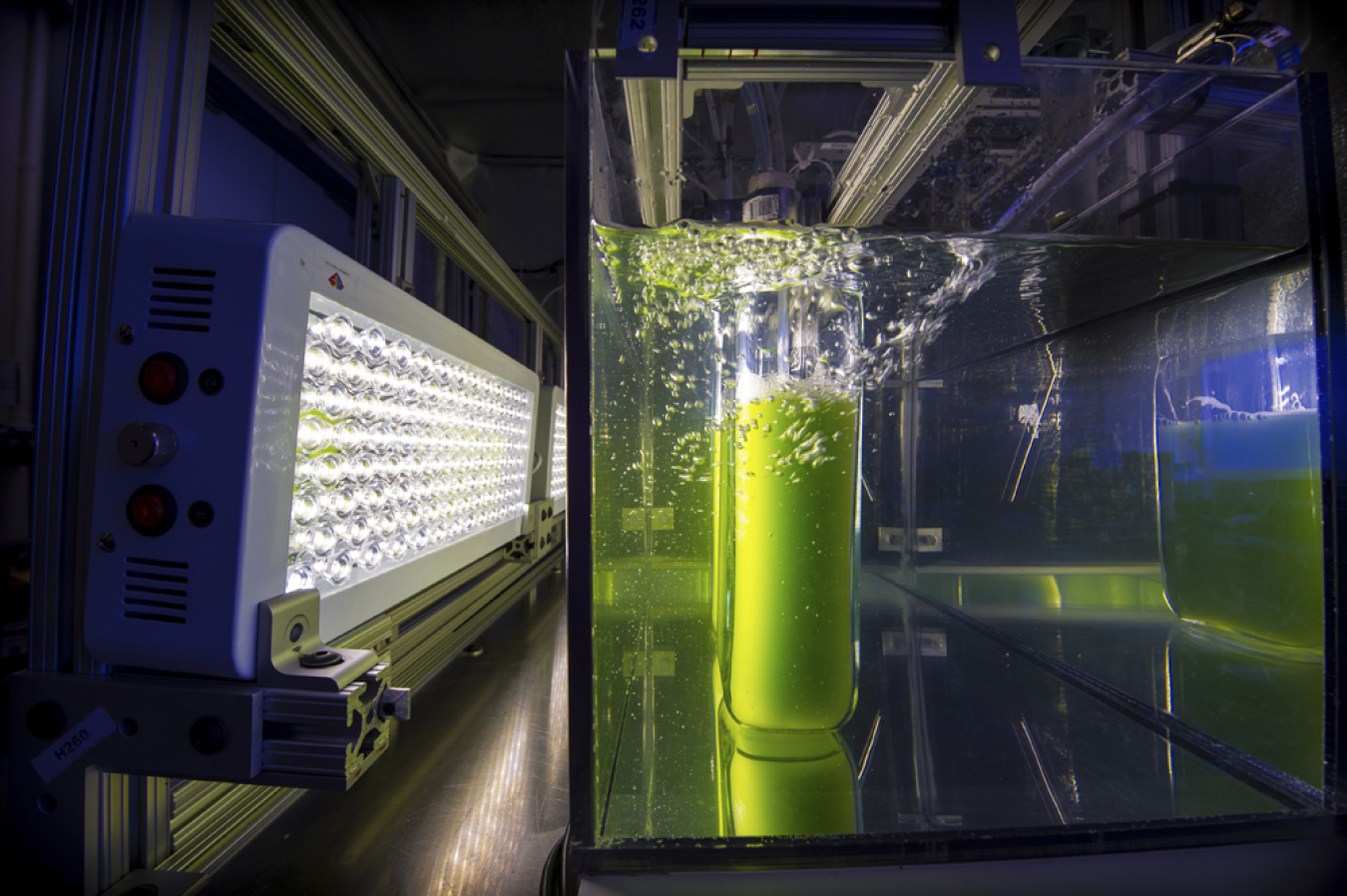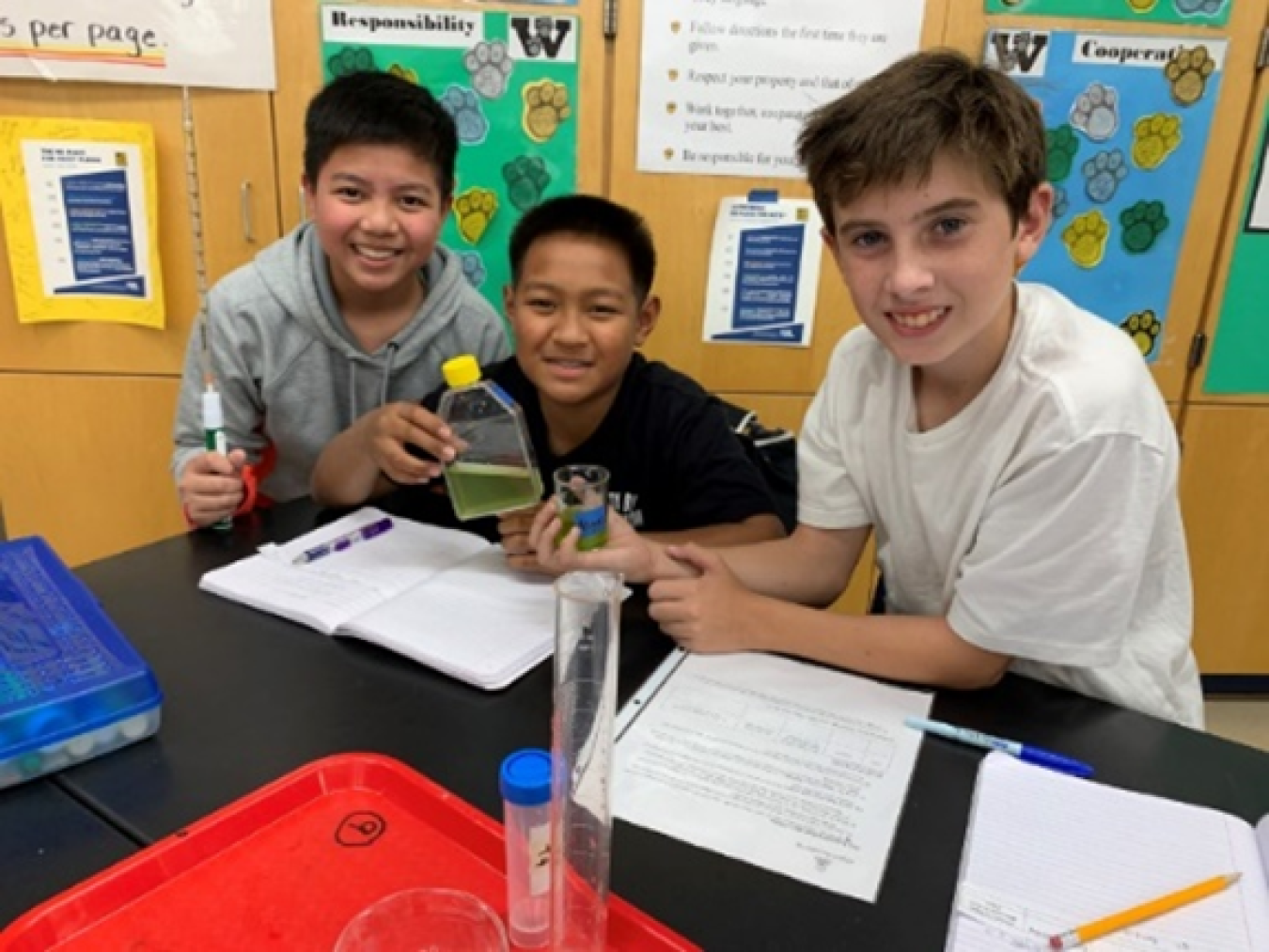Bioprose Blog: Learn how the Algae Technology Educational Consortium leads the way toward educating the next generation of bioeconomy professionals.
May 12, 2020Christy Sterner

Christy Sterner is a Technology Manager and serves as one of the primary Algae subject matter experts for the Renewable Carbon Resources Program in the U.S. Department of Energy's (DOE's) Bioenergy Technologies Office (BETO). Christy is the DOE Lead for the AlgaePrize Competition, a national algal-based competition that challenges students to become the next generation of bioeconomy professionals.
Christy has many projects in her portfolio ranging from core research at DOE's national laboratories to larger-scale pilot and demo projects. Christy has a B.S. in chemical engineering from the Colorado School of Mines and a research and development and project management background.
BIOPROSE BLOG
How ATEC leads the way toward educating the next generation of bioeconomy professionals.
The Algae Technology Educational Consortium (ATEC) is a collaboration between the Algae Foundation, the U.S. Department of Energy's Bioenergy Technologies Office (BETO), and the National Renewable Energy Laboratory (NREL). Together, these organizations have created many widely accessible workforce development and training opportunities in algae.
ATEC's Support of the Algae Industry through Education

ATEC originated in 2015 to support high-quality jobs in the U.S. workforce due to the potential of algal biomass as a viable feedstock source for the development of bio-based products, fuel, feed, and foods.
ATEC is currently in the fifth year of a $2.55 million grant from BETO. ATEC's goals are to produce:
- Novel educational courses for grades K-12
- Certificate and degree programs in algal cultivation and biotechnology.
These educational opportunities enhance the science, technology, engineering, and math (STEM) skill set of students, aquaculturists, farmers, biotechnicians, and others interested in advancing their education to enable career pathways in the algae industry while helping to strengthen the bioeconomy workforce.
Specific ATEC programming includes:
1. Algae Academy
ATEC’s K-12 Algae STEM Initiative educates and excites students on the power of algae as a promising solution for several issues facing our global community. Through education, students learn practical algal farming applications. The curriculum module includes five days of age-specific algae STEM lessons.

2. ATEC in Community Colleges and Universities
ATEC’s flagship programming involves community colleges and universities nationwide that provide or will provide algal cultivation and biotechnology certificates and degrees. Program graduates learn practical farming and biotechnology applications to enhance skills for the algae industry workforce. Examples of certificates and degrees are as follows:
- Santa Fe Community College: Algae Cultivation Certificate—This certificate covers the basic science and technology of algae cultivation and offers students the skills required to work in the algaculture industry or create their own algaculture business. The first ATEC graduates received a certificate in Algae Cultivation on May 12, 2018.
Austin Community College: Algae Biotechnology—ATEC and Austin Community College initiated an algal-based biotechnology curriculum and developed two, one-week laboratory intensive courses.

3. Algae Cultivation Extension Short-Course (ACES)
ACES, an extension/outreach component of ATEC, is divided into two parts: macroalgae and microalgae. Part 1 covers macroalgae (seaweed) and is designed for those already in the aquaculture/shellfish industry seeking to learn new skills. Part 2 covers microalgae cultivation.
Register for ACES Part 1: Macroalgae and ACES Part 2: Microalgae.
4. Introduction to Algae Massive Open Online Course (MOOC)
The “Introduction to Algae” MOOC brings together algae experts from industry and academia. Participants explore the vast diversity of current commercial algae use. Register for Introduction to Algae MOOC.
A second algae MOOC, “Introduction to Microalgae Biotechnology,” is expected to launch this year. A third algae MOOC, “Introduction to Seaweed Biotechnology,” is currently under development, and is scheduled for a 2021–2022 release.
Additional Information about ATEC and Careers in Algae
These initiatives bolster the algae industry by training today’s students to enter tomorrow’s workforce. Explore career possibilities in algae.
Visit ATEC's homepage for more information.
Christy Sterner is a Technology Manager and serves as one of the primary Algae subject matter experts for the Renewable Carbon Resources Program in the U.S. Department of Energy's (DOE's) Bioenergy Technologies Office (BETO).


